10 Elvis Presley Facts You Didn’t Know
Many musicians have produced songs that have remained popular for several decades. In some cases, this popularity has continued even after the artist's retirement or passing. One such legendary figure...
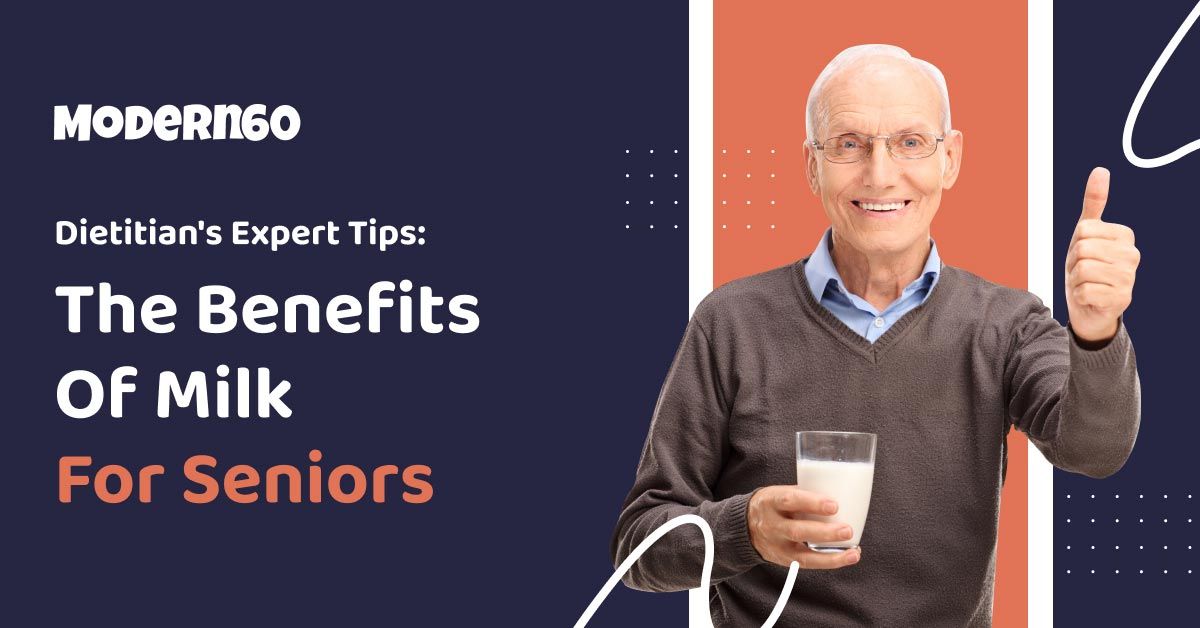
There are many questions: Is milk healthy for seniors? This is a common dietary question that many caregivers and seniors themselves often ask. Many grew up drinking it thinking that it was the right option, but is it?
This article aims to provide expert insights from dietitians on the benefits and potential concerns of milk consumption for the elderly. By exploring both sides, we can better understand how milk can fit into a balanced diet for seniors.
Well, the good news is that yes! Milk is a great option for elderly people to meet their calorie, protein, Vitamin D, and Calcium needs! Elderly calcium intake can be greatly beneficial for their health. Milk is a versatile drink that can promote good health and longevity as we age.
Here you’ll find out what benefits you can get from drinking milk!
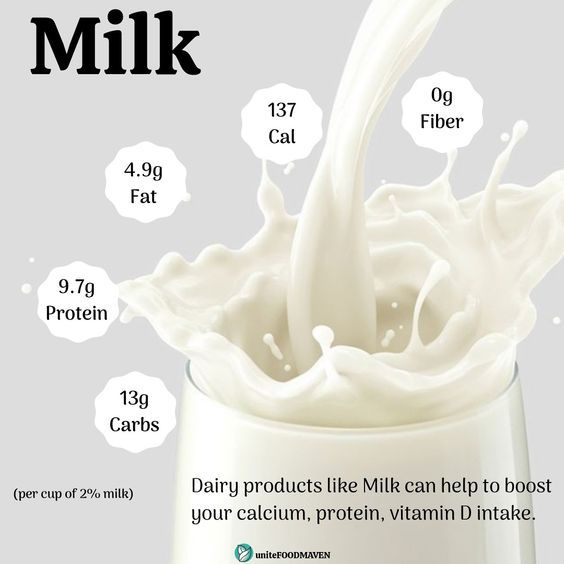
In one glass of 2% milk there is 130 calories, 5 grams of fat, 12 grams of carbohydrates, 9 grams of protein, as well as a healthy amount of Vitamin A, Vitamin D, Calcium and Potassium.
Milk is a rich source of several key nutrients that are essential for maintaining health in elderly individuals:
Current dietary research supports the inclusion of these nutrients in the diet of elderly individuals to help maintain overall health and physiological balance. Studies have shown that adequate intake of calcium and vitamin D can significantly reduce the risk of fractures and osteoporosis in the elderly (The Geriatric Dietitian). Protein intake is also linked to improved muscle mass and strength, which is crucial for maintaining mobility and independence (eatright).
Maintaining healthy bones is essential as we age in order to reduce our risk of falls and fractures. A fall and fracture can lead to a loss of independence and increased risk of hospitalisation.
By having a good supply of protein, calcium and vitamin D, these help to build, repair and maintain healthy bones. They can also support healthy muscle repair and growth in elderly individuals.
| Type of Milk | Calories (per 8 oz) | Protein (g) | Calcium (% DV) | Vitamin D (% DV) | Fat (g) | Potential Benefits | Potential Concerns |
| Whole Cow’s Milk | 150 | 8 | 30 | 15 | 8 | High in protein, calcium, and vitamin D | High in saturated fat |
| Low-Fat Cow’s Milk | 100 | 8 | 30 | 15 | 2.5 | Lower in fat, still high in essential nutrients | May still contain some lactose |
| Skim Milk | 80 | 8 | 30 | 15 | 0 | Lowest in fat, high in protein and calcium | May still contain some lactose |
| Lactose-Free Milk | 120 | 8 | 30 | 15 | 5 | Suitable for lactose-intolerant individuals | Similar concerns as cow’s milk regarding fat |
| Soy Milk | 100 | 7 | 30 | 15 | 4 | High in protein, often fortified with calcium and vitamin D | Potential allergens, some brands high in added sugars |
| Almond Milk | 60 | 1 | 30 | 15 | 2.5 | Low in calories, often fortified with calcium and vitamin D | Low in protein, potential allergens |
| Oat Milk | 120 | 3 | 25 | 20 | 5 | Good source of fiber, often fortified with calcium and vitamin D | Higher in carbohydrates, may contain added sugars |
| Rice Milk | 120 | 1 | 25 | 15 | 2.5 | Hypoallergenic, often fortified | Very low in protein, higher in carbohydrates |
| Coconut Milk | 45 | 0 | 10 | 10 | 4 | Low in calories, often fortified | Very low in protein, high in saturated fat |
| Hemp Milk | 80 | 2 | 20 | 15 | 5 | Contains omega-3 fatty acids, often fortified | Low in protein, potential allergens |
Notes:

Milk is a wonderful addition to any elderly individual’s diet because it can be used in recipes, as a drink, blended in a smoothie, or with cereal. Its versatility allows it to be enjoyed in a variety of ways.
Osteoporosis is a condition largely affecting elderly women, it means that they have porous bones which can put them at a very high risk of fracturing them. The components in milk can help to prevent these pores from forming in your youth.
In elderly people it can help to maintain good muscle strength in the legs to help maintain balance, and reduce these fractures from happening!
The best milk for seniors will vary based on their health conditions, but as a Registered Dietitian, I recommend that if people are able to drink cow’s milk, in general, a glass of 2% cow’s milk daily can be a great choice.

While milk is a great drink option it’s not meant for everyone to consume. Lactose intolerance in the elderly does occur, and it needs to be taken into account. If you suffer from a lactose intolerance or a lactose allergy it’s best to steer clear of regular milk.
But there are still good options for you even if you have one of those conditions. Today they have lactose-free milk options in grocery stores, this can help to avoid the uncomfortable symptoms associated with lactose issues!
If you need help selecting the best milk option for you considering both lactose issues as well as if you’re trying to keep your fat intake down, it’s best to talk to a Registered Dietitian. They can help guide you to the right options for your specific health needs.

Incorporating Milk Safely and Effectively: Dietitians recommend that elderly individuals incorporate milk into their diet in a way that maximizes its nutritional benefits while accommodating any specific health concerns or dietary restrictions. Here are some specific guidelines:
Alternatives to Cow’s Milk: For elderly individuals with lactose intolerance, allergies, or dietary preferences, several alternatives to cow’s milk are available. Here are some common options along with their nutritional profiles:
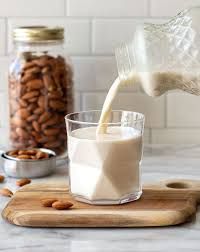
2. Soy Milk: Rich in protein and often fortified with vitamins and minerals, soy milk is nutritionally similar to cow’s milk and is an excellent alternative for those who need a higher protein intake.
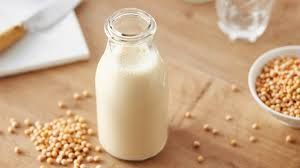
3. Oat Milk: Naturally creamy and often fortified, oat milk provides a good source of fiber and can be a nutritious alternative for those with multiple dietary restrictions.
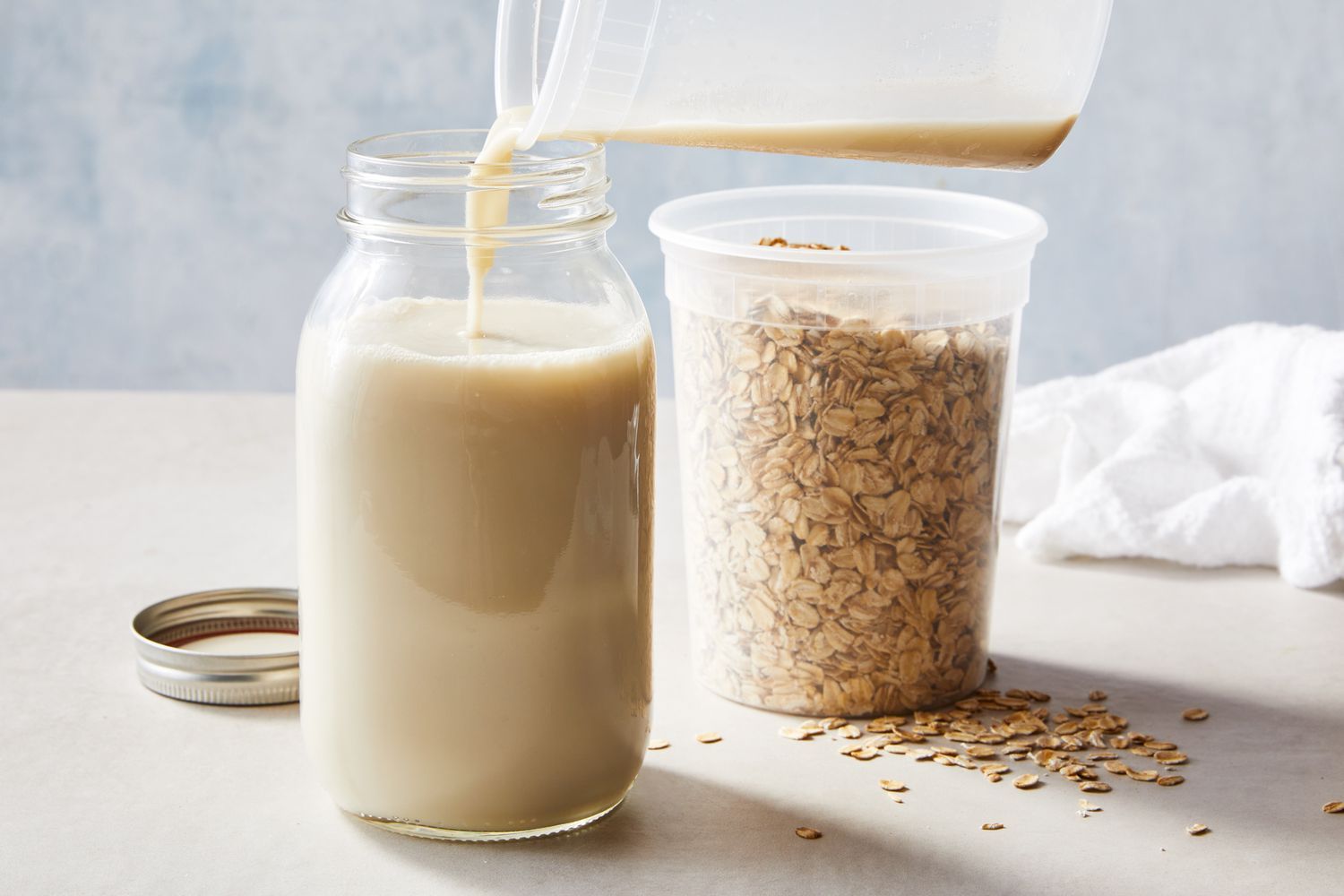
4. Lactose-Free Milk: For those who are lactose intolerant but prefer the taste and nutritional profile of cow’s milk, lactose-free milk offers all the benefits without the digestive discomfort.
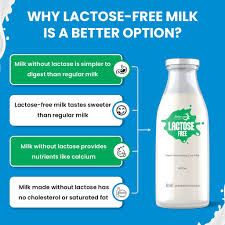
Nutritional Equivalence: When choosing plant-based alternatives, it’s important to look for those fortified with calcium, vitamin D, and other essential nutrients to ensure they provide similar benefits to cow’s milk. Consulting with a dietitian can help determine the best choices based on individual dietary needs and health goals.
Milk can be a valuable component of elderly nutrition, providing essential nutrients that support bone density, muscle health, and overall physiological balance. While milk offers numerous benefits, potential concerns such as lactose intolerance and high-fat content should be considered.
Dietitians recommend incorporating milk safely into the diet and exploring alternatives like almond, soy, or oat milk for those with specific dietary needs. Personalized nutrition advice is crucial for optimizing health in elderly individuals. Therefore, consulting healthcare providers to tailor dietary choices based on individual health requirements is highly encouraged. Tailored advice ensures that nutritional strategies are both effective and appropriate, enhancing the overall well-being of elderly individuals.

Michelle Saari is a highly experienced Registered Dietitian based in Canada, specializing in nutrition for aging well. She holds a Master’s Degree in Human Nutritional Sciences from the University of Manitoba and has completed a Dietetic Internship at the Northern Ontario School of Medicine. She also holds a Bachelor’s Degree in Human Nutritional Sciences and a Bachelor of Science in Biology from the University of Manitoba. With over six years of experience as a Clinical Dietitian at the Winnipeg Regional Health Authority, Michelle has extensive knowledge in nutrition education and food services. She has also served as the Director of the Food and Nutrition Services Department, where she led numerous initiatives to improve patient care through targeted nutrition strategies. She is the founder of two elderly nutrition-focused health blogs, The Dietitian Prescription and The Long Term Care RD. Through these platforms, she creates engaging and informative content that bridges the gap between scientific research and practical dietary choices. She is passionate about promoting health through evidence-based nutrition advice, specializing in high protein, high fiber, and low Glycemic Index cooking. Her expertise has been recognized by prominent media outlets, including Forbes, Fox News, Men’s Health, Yahoo, MSN, She Finds, Eat This Not That!, U.S. News and World Report, and AskMen.com. She has also been a featured guest speaker at esteemed events such as the North West Renal Dietitian's Annual Conference and the Dietitians of Canada Annual Conference, where she presented her thesis research.


Unlock expert insights and tips with our exclusive ebook. Enter your email to get your free copy.
Please check your email for a welcome message from Modern60. If it's not in your inbox, kindly check your spam or junk folder
There are no comments yet